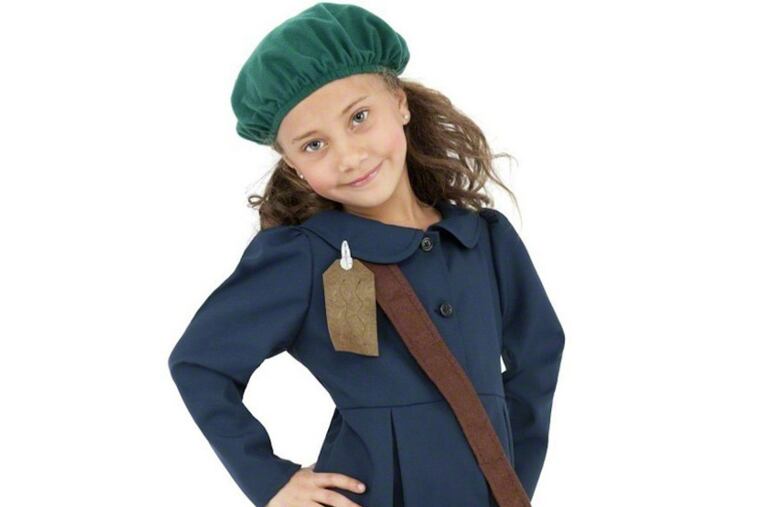Halloween meets political correctness | Stu Bykofsky
Some cultures are more fragile than others. Who decides? White academics and bloggers, usually. Despite their kvetching, Halloween continues to grow, maybe because some people are tired of being lectured.

Once upon a time, Halloween was a kids' holiday, and it was fun.
In school, we cut pumpkins out of orange construction paper and attached them to poster board with a white glue that handled like cottage cheese (and didn't taste too bad). We went trick-or-treating with no concern about being kidnapped or poisoned or worse.
In recent decades, Halloween has been commandeered by adults — young adults, anyway. Handmade costumes are faded memories, replaced by $6.9 billion in Halloween sales, says the National Retail Federation.
Along with its popularity have come accusations that Halloween is a cauldron of cultural appropriation. That is defined as borrowing traditional artifacts, rituals, or dress from another culture, often without proper context.
There is some truth in that, because it is a holiday, not an ethnographic college report. There was also some truth to complaints from the religious that Halloween was a pagan celebration. A simple response would be to ignore it if it offends you, but simplicity is too difficult for some.
Part of Halloween fun always has been dressing up like someone, whether that someone be a ghoul or a queen or a Mexican.
Donning a sombrero and a serape is offensive, I hear, but wearing a kilt and sporran is not. It is OK to dress as a cowboy but not as a Native American.
Anyone complain about Vikings? No. Samurais? Yes.
Some cultures seem to be more fragile than others. Who decides who requires a safe space? Guilt-ridden white social scientists, usually. But despite the complaints and shaming, Halloween keeps growing — maybe because fun-seekers are tired of sanctimonious lectures.
Halloween originated with the ancient Celtic festival of Samhain. People would light bonfires and wear costumes to ward off ghosts, according to History.com. You could say it is cultural appropriation for anyone else to observe Halloween.
See how silly it can get?
Before packaged costumes, parents turned to materials around the home to produce costumes for the kids. The hobo was traditional, but we now know it insults the homeless.
Before "Thriller," ghost costumes were fashioned out of a sheet or a pillow case. Today, some say mocking the dead (and undead) can be cruel.
In the olden days, the princess was a favored costume for girls. But as we now know, that endorsed undemocratic monarchies and objectified women as mechanical hand wavers.
Perhaps to elevate the role of girls, one costume manufacturer jumped the shark with an Anne Frank costume. It was forced to withdraw it after complaints on social media.
Each year, some school will invent reasons to ban Halloween parades or parties, like an elementary school in Massachusetts. I guess they can wear Cincinnati Bengals helmets to show black-and-orange spirit.
I see political correctness siphoning some of the fun out of the holiday, but Henri David doesn't. Mr. Halloween will be staging his 50th annual Halloween party Tuesday night at the Sheraton Philadelphia Downtown.
"Politically correct? We don't have that problem," he says with a flourish. "Not for a second."
But what is OK in a hotel showroom — naughty words and nudity, for instance — is different from what is permitted on college campuses, where dressing as Starbucks is OK, but not Pocahontas, and warnings are sent to students to avoid offense.
In the end, we have modern-day moralists trying to dredge from a pagan ritual any morsel that might bother someone, somewhere, somehow.
Must we make a mountain out of every molehill?